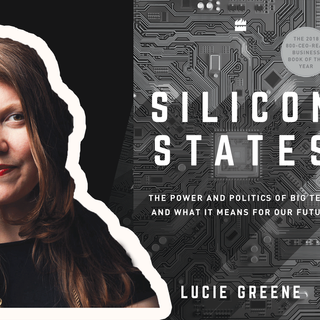A woman accused the Chief Justice of India Ranjan Gogoi of sexual harassment. Gogoi promptly chaired a hearing to address accusations against himself. An internal Supreme Court inquiry then gave a clean chit to its Chief Justice. It’s easy to be desensitized by the utter violation of due process that has plagued this case from the beginning. If the highest court of the land is in on the scam, then where are we supposed to go? Indian women have the answer: to the streets.
“Women are pushed into marriages, made to drop out of schools. They end up their entire lives in servitude to men and society. With great difficulty, one such woman comes out, completes her education, overcomes all hassles to get a job, and even then she isn’t treated with dignity. This is a fact all women acknowledge within their own lives,” said Varsha Bhargavi, founding member of Hyderabad-based NGO Where are the Women?, which is helping to orchestrate #SupremeInjustice protests across India to challenge the Supreme Court’s decision.
During one of the protests outside the Supreme Court in Delhi on Tuesday, more than 50 women were detained by police under Section 144 of the Criminal Procedure Code of 1973, which gives a magistrate the right to prohibit an assembly of more than four people “in urgent cases of nuisance of apprehended danger.” Those protesting, however, took to Twitter to marvel at why the state needed to set loose police forces to quell a peaceful protest.
In light of the violation of their constitutional rights of freedom of speech and expression, women are doubling down on the people pressure, now attempting to organize #SupremeInjustice protests in Hyderabad, Chennai, Indore and Amhedabad, all while abiding by the law, of course. One such organizer is Jyoti Pandey, an engineer working in the manufacturing industry, who just received permission from city police to conduct a peaceful demonstration in Indore.
“Our only intention with this protest is to let higher authorities know that no one is above [the] law,” she told The Swaddle via Twitter DMs. “Sure, the Supreme Court has disappointed us. That’s why the public have to interfere in court matters.”
The purpose of the protest is to emphasize the importance of following due process guidelines in matters related to sexual harassment and assault; reassure all women that they aren’t alone in trying to seek justice against powerful men; call for Gogoi to step down; demand a fresh, fair inquiry into the woman’s case against him; and exercise the public’s civil liberty to protest, Pandey said.
Related on The Swaddle:
The Vicious Cycle of Sexism in the Indian Court System
“The cause for the protest is expressing our collective angst. There is a very little part we can do. We hope that the retired judges and the existing lawyers in the legal system recognize our anger,” said Bhargavi, of Where are the Women?. Her organisation has been tracking the Twitter account @IndiaMeToo, which diligently coordinated mobilization efforts and spread awareness on the social media platform. Where are the Women? has also been sending out WhatsApp messages, mainly to women, asking them to join the protest. However, most women, including herself, are holding down a job and tending to their families, which has made it difficult to demonstrate in large numbers, she said.
Undeterred, Bhargavi said, “It is going to burn out everyone trying to protest. But if we are silent now, then if at all something happens to you or me, I don’t think anybody will care. A woman has a lot of courage to go and call out the CJI. We believe her. A woman would not ruin her family life, her reputation, and write an affidavit to 22 judges [over nothing]. This is not the kind of publicity any woman wants.”
Taking to the streets, however, is not the only course of action Bhargavi is exploring in the collective challenge to the SC decision. Activists will be writing postcards to SC judges and are exploring a public interest litigation (PIL) filing against them, she said. If protesters are not heard domestically, Bhargavi said, a team of lawyers that have joined the movement are also looking into approaching the Administrative Tribunal of the International Labor Organization to plead their case.
“I don’t think anybody wants to protest. We want to go to the beach and have fun, do our jobs. Why would we want to stand in the scorching heat in Hyderabad and say we want justice? This is the last resort,” Bhargavi said, all in the name of the woman who spoke out against Gogoi.
“We want to send a message to her — she is not alone. A fair trial is her constitutional right. We would like to extend this message to her, as a collective, and as part of her sisterhood.”




